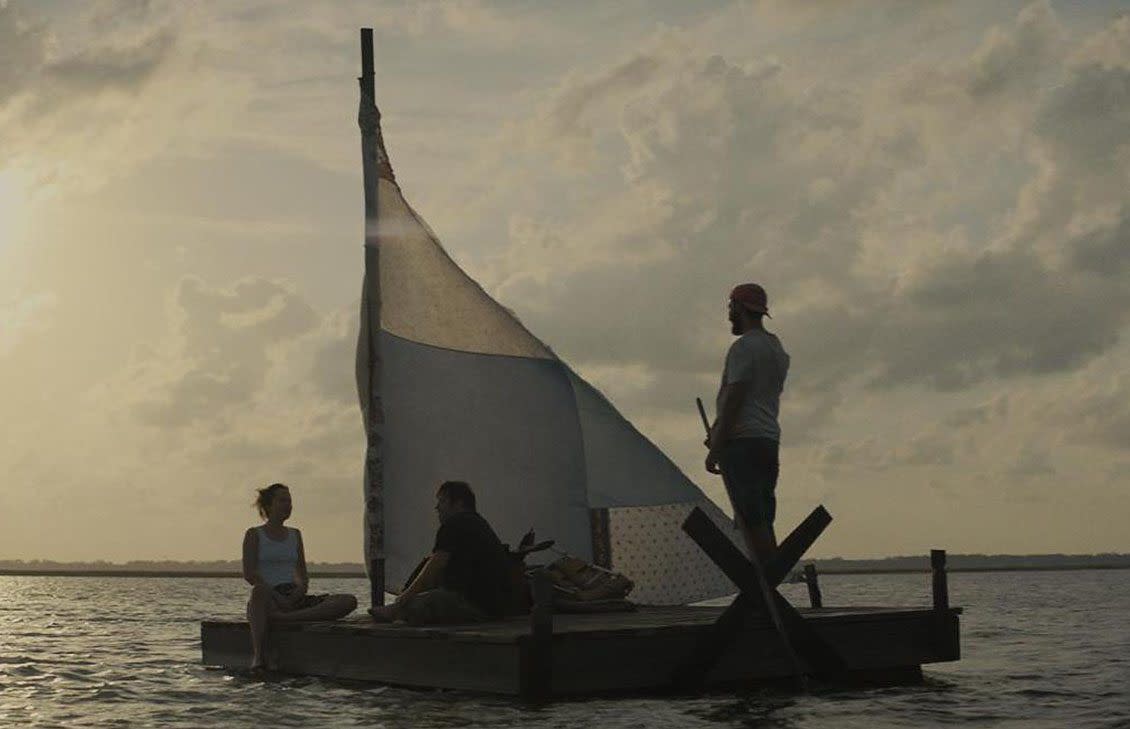SXSW Film Review: Shia LaBeouf Shines In the Gritty, Optimistic South of The Peanut Butter Falcon

The Pitch:The Peanut Butter Falcon began as a vehicle for its star, Zack Gottsagen, a performer with Down syndrome who filmmakers Tyler Nilson and Mike Schwartz met at a camp for disabled actors. As a story sprouted around Gottsagen—a young man’s Twain-esque journey through the intracoastal Southeast to a wrestling school—so, too, did a high-profile cast: Shia LaBeouf, Dakota Johnson, Bruce Dern, Thomas Haden Church, John Hawkes, and Jon Bernthal.
Gottsagen’s 22-year old Zak, consumed by decades-old videos of professional wrestling, longs to attend a grappling school run by The Salt Water Redneck, a deep-fried riff on Hulk Hogan played by Church. The problem is that, after being abandoned by his family two years earlier, he’s been confined inside a nursing home, where Eleanor (Johnson) tries, time and again, to thwart his many attempts at escape.
Aided by a crafty roommate (Dern), he soon escapes into the tall grass, clad only in a threadbare pair of undies. It’s not long before his path crosses with Tyler (LaBeouf), a depressed fisherman who’s run afoul of both the law, and a crew of pissed-off crabbers played by Hawkes and the rapper Yelawolf. Together, the pair navigate the forests and deltas of North Carolina, routinely tempting death when they’re not chugging whiskey, building boats, and envisioning Zak’s future inside the squared circle.
A Road Well Traveled: Nilson and Schwartz’s script contains few surprises; on the surface, Tyler and Zak’s journey hews mighty close to the mismatched road stories of yore. Furthermore, The Peanut Butter Falcon isn’t nearly as elegant as its predecessors — narrative wheels turn creakily, themes are introduced and abandoned, and characters often seem to change attitudes and motivations on a dime. Johnson, for as charming as she is, feels wedged into the film’s latter half, as do a few funny, offbeat supporting characters that feel plucked from the O Brother, Where Art Thou universe.
A Road Worth Traversing: But while one wishes the beats were a touch more oiled, the film’s strengths reside outside the confines of narrative. The muddy, comforting world Nilson and Schwartz put to film evokes the out-of-time South of Sling Blade and David Gordon Green’s early films, where days can pass in solitude and store owners add up your purchases with paper and pencil. The grit remains, but there’s a magic to their vision, one that becomes gorgeously, perfectly literal in a climactic sequence that cements The Peanut Butter Falcon as the dirt-flecked fairytale it is. Church’s Salt Water Redneck lends to this vibe, emerging like Oz’s Wizard as a myth turned strikingly human. Nilson and Schwartz also achieve a manner of transcendence by casting Jake “The Snake” Roberts, a onetime WWE mainstay who’s become something of a myth unto himself.
Two-Man Show: Nilson and Schwartz’s deep cast is striking for such an original story — a unicorn in an IP-obsessed Hollywood — but blissfully, they don’t allow Gottsagen’s star to be eclipsed, nor do they allow the singularity of their swampy, sun-baked vision of America to be clouded. That’s evident in the film’s central love story, which isn’t between LaBeouf and Johnson (although they make for electric scene partners), but between LaBeouf and Gottsagen, who here develop a touching bond that transcends words.
Some of the film’s most stirring sequences are simple, silent, and physical, each bursting with a kindness that feels as magical as the film’s ending. Gottsagen shines in moments both comic and sad, and delivers the film’s most heartbreaking moment when he says his wrestling character would be a bad guy because, if his family abandoned him, he must be bad. LaBeouf, meanwhile, offers a performance as muscular as it is tender, his open wound of a character having been inspired by his own real-life troubles.
The Verdict: The Peanut Butter Falcon‘s tale traverses a well-worn foundation, with a picaresque hero finding salvation in a wayward soul, but this riff on the road movie is both distinctly modern and bracingly optimistic. That doesn’t mean there isn’t a healthy dose of reality here — Hawkes’ heavy is evidence of that — but the film nevertheless retains a giddy sense of possibility and innocence, the kind that almost feels out of fashion in today’s contentious age. That’s where the wrestling angle comes in: There is good and there is evil, and sometimes it is that simple. And sometimes a face turn is within reach. And that’s a really lovely thought.

